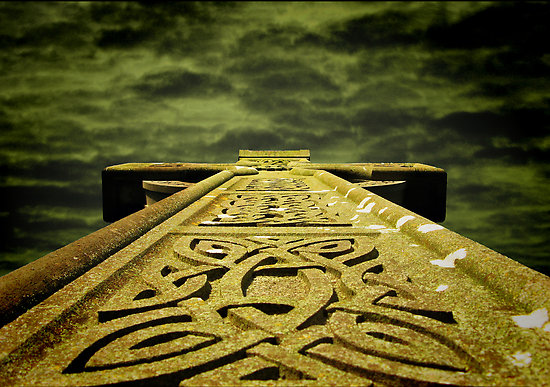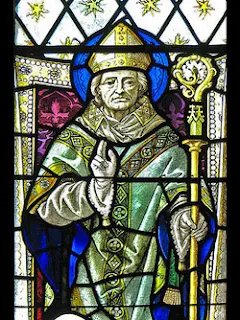As a sign of his remorse for his role in the murder of the Archbishop Thomas a Becket, King Henry II founded the first house in England of the strict monastic order called the Carthusians. Difficulties arose with the first two priors, and a French noble recommended Hugh de Avalon, who at that time had been a monk at the mother house of the order for 17 years.
On his arrival in England in 1176, Hugh found that the building of the monastery had not begun. Worse, no compensation had been paid to those who would have to lose their lands and property to make room for it. Hugh refused to take office until these persons had been paid "to the last penny." He intervened again on behalf of the builders, whose pay was not forthcoming.
Henry loved him for his plain speaking. "I do not despair of you," Hugh said to him at their first interview; "I know how much your many occupations interfere with the health of your soul." Henry, impressed by his frankness, swore that while he lived he should not leave his kingdom, and took so much pleasure in his conversation, and paid so much heed to his counsels, that a rumor arose that Hugh was his son. Hugh's biographer wrote that "of all men only Hugh could bend that rhinosceros to his will." When Henry was in danger of shipwreck, he cried out, "If only my Carthusian Hugh were awake and at prayer, God would not forget me."
This affection never diminished, though Hugh dared to oppose the king, particularly in the matter of keeping bishoprics vacant in order that their revenues might fall to the king's treasury. One of the worst examples was Lincoln, which, except for a few months, had been without a bishop for eighteen years. Hugh was elected to the post in 1186, and his monastic superiors ordered him to accept. After so long a period of neglect, there was great need of reform. Hugh employed priests of great piety and learning, and made the fullest use of his authority in disciplining his clergy. He took a stern view of the ill-treatment of the poor by the royal foresters, and when a subject of the church of Lincoln suffered at their hands he excommunicated their chief.
He also refused to appoint a royal favorite to a meaningless but lucrative post. Henry was furious, and summoned him to his presence. He came, and Henry turned away his face and would not speak, but by way of ignoring his presence took out a torn glove and began to sew it. At last Hugh said, "How like you are to your relations at Falaise." The king might have resented this allusion to the humble birth of William the Conqueror's mother, the daughter of a glove-maker, but he only laughed, and the quarrel was made up.
Riots against the Jews broke out in England at the time of the Third Crusade. In defence of the persecuted, Hugh faced armed mobs in Lincoln, Stamford and Northampton and compelled their submission.
Hugh refused to raise money for the foreign wars of King Richard the Lion-Heart, calmed the king's rage with a kiss, and persisted in his refusal: this was the first clear example on record of the refusal of a money-grant demanded directly by the crown, and an important legal precedent. Richard said, "If all bishops were like my lord of Lincoln, not a prince among us could raise his head against them."
His relations with King John were less happy. John showed him an amulet, which he said was sacred and would preserve him. Hugh replied, "Do not put your trust in lifeless stone, but only in the living and heavenly stone, our Lord Jesus Christ." The following Easter he preached at length on the duties of kings, and the king slipped out partway through.
Devout, tireless, and forgetful of self, Hugh also had wit, a temper that he described as "more biting than pepper," and a great love and concern for children and the defenceless. He visited leper-houses and washed the ulcerous limbs of their inmates.
He was fond of animals, and they of him. Birds and squirrels came readily to his hand. He had a swan that would feed from his hand, follow him about, and keep guard over his bed, so that no one could approach it without being attacked.
In 1200 the king sent him on an embassy to France. His mission was a success, but he took ill and returned to England to die on 16 November 1200. John Ruskin called him "the most beautiful sacerdotal (priestly) figure known to me in history."
-John Kiefer
Prayer (contemporary language)
O holy God, who endowed your servant and bishop Hugh of Lincoln with wise and cheerful boldness, and taught him to commend the discipline of holy life to kings and princes: Grant that we also, rejoicing in the Good News of your mercy, and fearing nothing but the loss of you, may be bold to speak the truth in love, in the name of Jesus Christ our Redeemer, who lives and reigns with you and the Holy Spirit, one God, now and for ever.


No comments:
Post a Comment